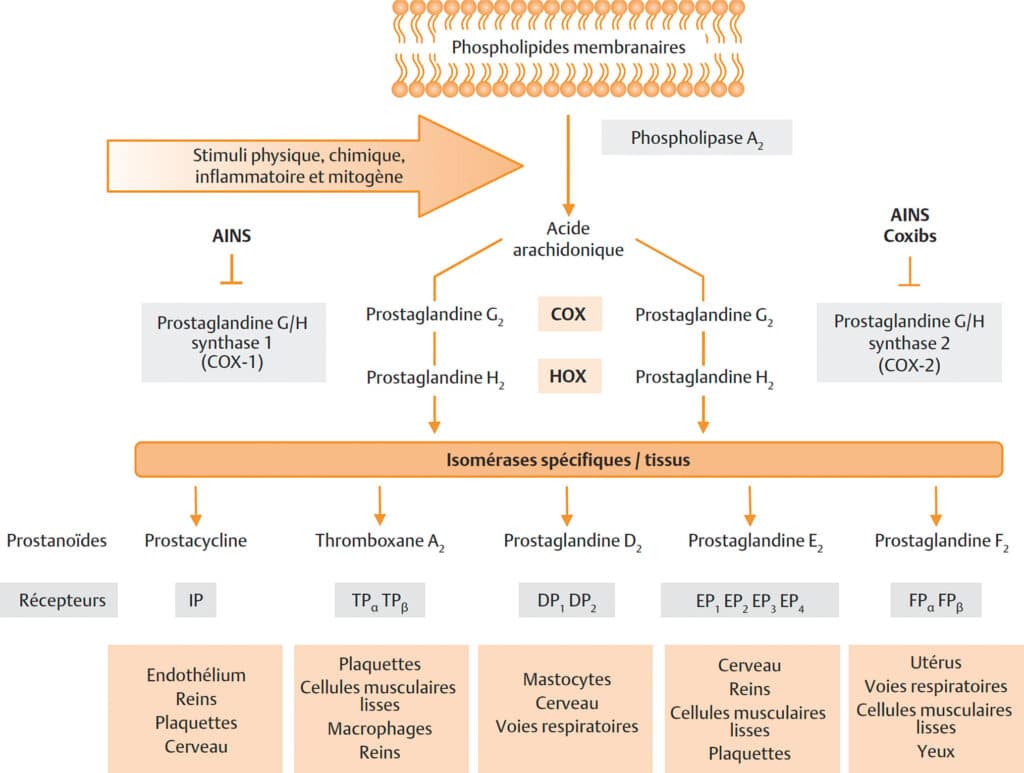Since the announcement of Donald Trump’s “Liberation Day” projects, global financial markets have been shaken by uncertainty. Consumers and manufacturers of medical products are particularly concerned about rising costs and the availability of products. The S&P has fallen by more than 10% this week, reflecting general anxiety.
The tariffs imposed risk triggering a trade war, seriously impacting the medical sector. AdvaMed and other industry associations express their disappointment at the administrative intentions that could hinder American technological innovation. A joint letter to the trade representative highlights the dangers to the supply chain and the increasing costs of essential equipment. There are growing fears that these measures will obstruct access to care and put pressure on healthcare providers and hospitals, particularly in rural and underserved areas.

What are the reasons behind the MedTech groups’ union?
Since the announcement of the “Liberation Day” plans by Donald Trump at an event in the Rose Garden of the White House on April 2, the global financial markets have felt a shockwave, reflecting concern over the uncertain impacts of the imposed tariffs and potential trade wars. This situation has pushed the MedTech industry groups to unite in a collective effort to obtain a tariff exemption. The main objective of this union is to protect the innovation and competitiveness of the American medical industry while ensuring the availability and accessibility of essential medical products.
The tariffs imposed by the current administration have created a climate of uncertainty, affecting not only businesses but also consumers and healthcare providers. In response, major associations like AdvaMed, along with nine other medical industry groups, have drafted a letter to the United States Trade Representative, Jameison Greer. This letter expresses their concern about the impact of tariffs on medical and dental supplies, equipment, and devices, emphasizing that these products are crucial for delivering quality care and saving lives.
By joining forces, these groups aim to demonstrate the importance of their sector for public health and the American economy. They seek to prevent a rise in costs that could stifle innovation and make medical care less accessible, particularly in rural and underserved areas. This coalition represents a proactive strategy to influence government policies and ensure a favorable future for the MedTech industry.
What impact do the current tariffs have on the MedTech industry?
The recently announced tariffs by the Trump administration have caused a wave of concern within the MedTech industry. Indeed, these tariffs risk leading to increased production and distribution costs for medical devices, which could affect the final prices of products for consumers. According to a survey by Black Book Market Research, 88% of hospital and healthcare system executives expect a minimum increase of 18% in medical equipment costs by the fourth quarter of 2025. Moreover, 94% anticipate a rise of 33% or more for critical devices affected by import penalties from China and the European Union.
This increase in costs has direct repercussions on healthcare providers, hospitals, and healthcare systems, particularly those located in rural and underserved regions. The rising prices of medical equipment could lead to increased financial pressures, limiting the ability of institutions to invest in new technologies and provide quality care. Furthermore, medical device manufacturers face heightened challenges in maintaining the quality and accessibility of their products, which could stifle innovation and the competitiveness of the American industry on the international stage.
To learn more about the preparedness of the healthcare and medical technology sector to the impact of tariffs, please consult this supplementary article.
How are MedTech leaders reacting to the new tariff policies?
Following the announcement of the tariffs, Scott Whitaker, CEO of AdvaMed, expressed his disappointment at the administration’s intentions to impose tariffs that he believes would “negatively impact medical technology and American innovation.” Whitaker emphasizes that industries with a significant humanitarian mission had previously been exempt from these tariffs, making this new decision particularly concerning for the MedTech sector.
In response, AdvaMed and other industry groups have taken coordinated measures to defend their interests. They have drafted a letter to the United States Trade Representative, Jameison Greer, to support the administration’s initiative to “Make America Healthier” and express their concerns about the effects of tariffs on medical and dental supplies, equipment, and devices. The letter highlights the vital importance of these products for providing timely and essential care, arguing that tariffs could disrupt the supply chain and increase costs for these critical items.
Additionally, leaders in the MedTech industry are considering collaborating closely with the Trump administration and other governmental agencies to promote policies favorable to public health while protecting the economic interests of the sector. This proactive approach aims to ensure that technological advancements in the medical field are not compromised by tariff barriers and to maintain the competitiveness of the American industry in the global market.
For more details on AdvaMed’s actions advocating for a tariff exemption, please consult this article.
What actions are MedTech groups taking to obtain an exemption?
To counter the adverse effects of tariffs, MedTech industry groups have implemented a series of strategic actions aimed at obtaining a tariff exemption. One of the main actions taken is the collective drafting of letters and statements addressed to policymakers, including the United States Trade Representative, Jameison Greer. These communications emphasize the importance of tariff-exempt medical equipment for maintaining an effective and accessible healthcare system.
In addition to letters, industry groups organize meetings and consultations with government representatives to advocate for their interests. They highlight data and market studies, such as that from Black Book Market Research, to demonstrate the financial impact of tariffs on medical equipment costs and, consequently, on patient care. These efforts aim to persuade policymakers that tariff exemption is crucial for preserving innovation and the accessibility of medical technologies.
Moreover, MedTech groups leverage their networks and partnerships to create a united and powerful front. This collaboration includes participating in events, disseminating coherent messages, and actively lobbying lawmakers and policymakers. By joining forces, these associations hope to maximize their influence and increase the chances of obtaining tariff exemptions that would protect the industry from cost increases and supply chain disruptions.
These efforts are supported by awareness campaigns and communication initiatives aimed at informing the public and stakeholders about the issues at stake. By mobilizing various actors and adopting a multifaceted approach, MedTech groups seek to create a favorable environment for negotiating tariff exemptions.
What are the stakes for consumers and healthcare professionals?
The imposition of tariffs on medical supplies and dental devices has direct and indirect repercussions on consumers and healthcare professionals. For consumers, this translates into a potential increase in medical care costs, making certain treatments and equipment less financially accessible. Patients, particularly those requiring critical devices, may face longer delays in obtaining necessary equipment, which could affect the quality of care received.
On the healthcare professionals’ side, the increased costs of medical and dental equipment represent an additional burden for hospitals and clinics. This could lead to budget constraints, limiting investments in new technologies and continuing education for medical staff. Furthermore, cost increases could force healthcare facilities to reassess their priorities, potentially at the expense of certain innovations or service expansions.
Additionally, healthcare professionals, especially those located in rural or underserved areas, could face increased difficulties in accessing vital equipment. This could not only limit their ability to provide quality care but also exacerbate health inequalities between different geographic regions.
Consumers and healthcare professionals are also concerned about the potential disruption of the supply chain, which could lead to shortages of certain essential medical equipment. Planning and proactive inventory management become crucial for minimizing the impacts of these disruptions and ensuring continuity of care.
What are the future prospects for the MedTech industry in light of tariffs?
In the face of uncertain tariff policies, the MedTech industry must adopt resilient strategies to navigate this complex environment. One of the main directions is to adapt supply chains to become more flexible and less dependent on imports subject to high tariffs. This includes diversifying supply sources and optimizing logistical processes to reduce costs and minimize interruptions.
Furthermore, continued innovation is essential to maintain the competitiveness of the American industry. Companies are investing more in research and development to create cutting-edge technologies that can justify higher costs and attract investments. Collaboration among various industry stakeholders, including researchers, manufacturers, and healthcare providers, is also crucial to develop innovative solutions that meet the growing needs of patients.
Additionally, lobbying and advocacy efforts remain vital for influencing political and economic decisions. By working closely with governments and regulatory agencies, MedTech groups can ensure that future policies reflect the strategic importance of the industry for public health and the national economy.
At the same time, adopting modern interoperable systems, centralizing data, and having a global view of inventory trends allows hospitals to shift from “push” based supply chain management to a more proactive “pull” approach. This enables active, real-time inventory management, optimizing resources and responding more effectively to the actual needs of healthcare facilities.
Finally, advocacy for an immediate transition to digital communication is also highlighted by leading hospital systems. This transition aims to manage supply chain disruptions more effectively and enhance patient safety.
In conclusion, although tariffs pose significant challenges, the MedTech industry is adopting a multifaceted approach to overcome these obstacles. Through united efforts, continued innovation, and strategic adaptation, the sector is well-positioned to maintain its growth and continue improving health outcomes for Americans.
The recent mobilization of MedTech industry groups to obtain a tariff exemption highlights the vital importance of these equipment and supplies in maintaining and improving the American healthcare system. In response to the Trump administration’s announcements concerning the imposition of new tariffs, these key players are demonstrating their determination to protect innovation and access to essential care.
By coming together, associations such as AdvaMed and nine other medical industry groups highlight the significant risks these tariffs pose to the supply chain and the costs of medical products. The increase in tariffs could not only raise healthcare institutions’ expenses but also limit patient access, particularly in rural and underserved areas, thereby compromising the quality and timeliness of care provided.
The letter addressed to the U.S. Trade Representative outlines the alarming forecasts from hospital executives, anticipating an increase in medical equipment costs of up to 33% by the end of 2025. These tariff increases threaten not only the financial margins of hospitals and healthcare systems but also their capacity to innovate and improve treatment outcomes, directly impacting the health and well-being of patients.
By uniting, MedTech groups seek to collaborate with the administration to develop balanced policies that support both the economy and public health. Their call for tariff exemptions aims to prevent an escalation of healthcare costs and ensure that crucial medical technologies remain accessible to all Americans. This proactive approach is essential to ensure the continuity of medical innovations and maintain high standards in healthcare, thereby strengthening the resilience and efficiency of the healthcare system in the face of current economic challenges.














